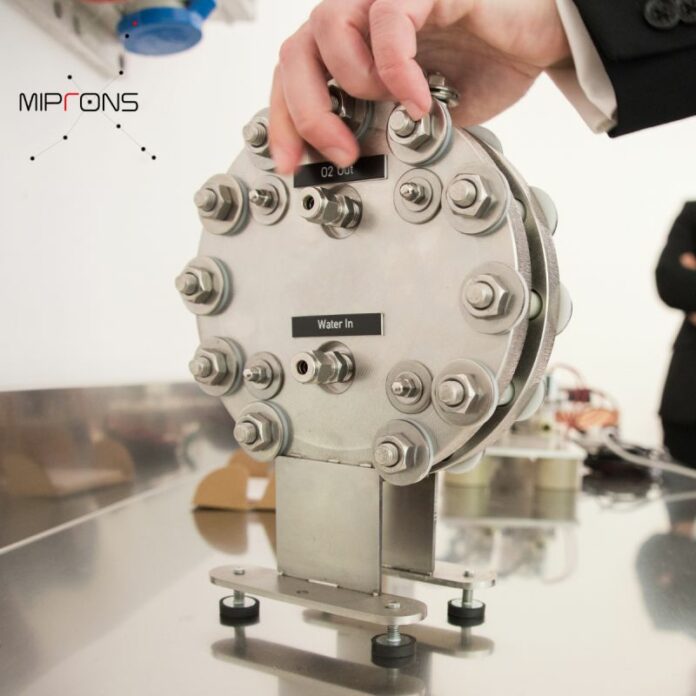Five years ago, aerospace company Thales was a relatively newcomer in the AM industry – exploring what was possible to do with this technology. Fast forward to today: the aerospace industry keeps demonstrating how far we can push this technology in the production of components. As a matter of fact, the aerospace industry is one of the demanding industries that is ahead of the curve when it comes to leveraging AM processes. Thales Alenia Space, the joint venture between Thales (67%) and Leonardo (33%) resurfaces with an interesting project: the development of a highly innovative propulsion system for satellites, using water as a fuel.
The project will be made possible thanks to the expertise of Italian startup MIPRONS which is on a mission to speed up satellite orbital positioning and react more quickly in the event of a collision threat.
On the path to developing a miniaturized, high-thrust thruster that will use a very green, cost-effective propellant – water.
How will this work? Let’s note that in just three years, MIPRONS has developed a proprietary technology for innovative space propulsion systems and the relative main components. The company’s concept is focusing the attention on water in space applications, both for propulsion and human needs.
In this case, an electrolysis process breaks down the water into hydrogen and oxygen, which are fed into the combustion chamber. Only loading water, the system would allow for faster maneuver times such as orbit-raising, de-orbiting and collision avoidance. Because the system is both compact and scalable, it can be used on all size satellites, from small to large.
The MIPRONS process will also rely on AM for a number of parts. No information has been given on the type of parts that will be additively manufactured, nor the exact AM process that will be leveraged. We do know that the thruster will feature reduced weight and volume – which are advantages that can be achieved via AM.
Furthermore, Thales Alenia Space will guide thruster development to achieve a reliable, high-performance propulsion solution for small and medium satellites and support the environmental testing of the engineering model.
“This agreement confirms Thales Alenia Space’s strategy to play a pivotal role in new space initiatives, reflected in synergies generated with exciting new startups that catalyze the entire space ecosystem”, added Angelo Minotti, CEO and founder of MIPRONS.
Remember, you can post job opportunities in the AM Industry on 3D ADEPT Media free of charge or look for a job via our job board. Make sure to follow us on our social networks and subscribe to our weekly newsletter : Facebook, Twitter, LinkedIn & Instagram ! If you want to be featured in the next issue of our digital magazine or if you hear a story that needs to be heard, make sure you send it to contact@3dadept.com


